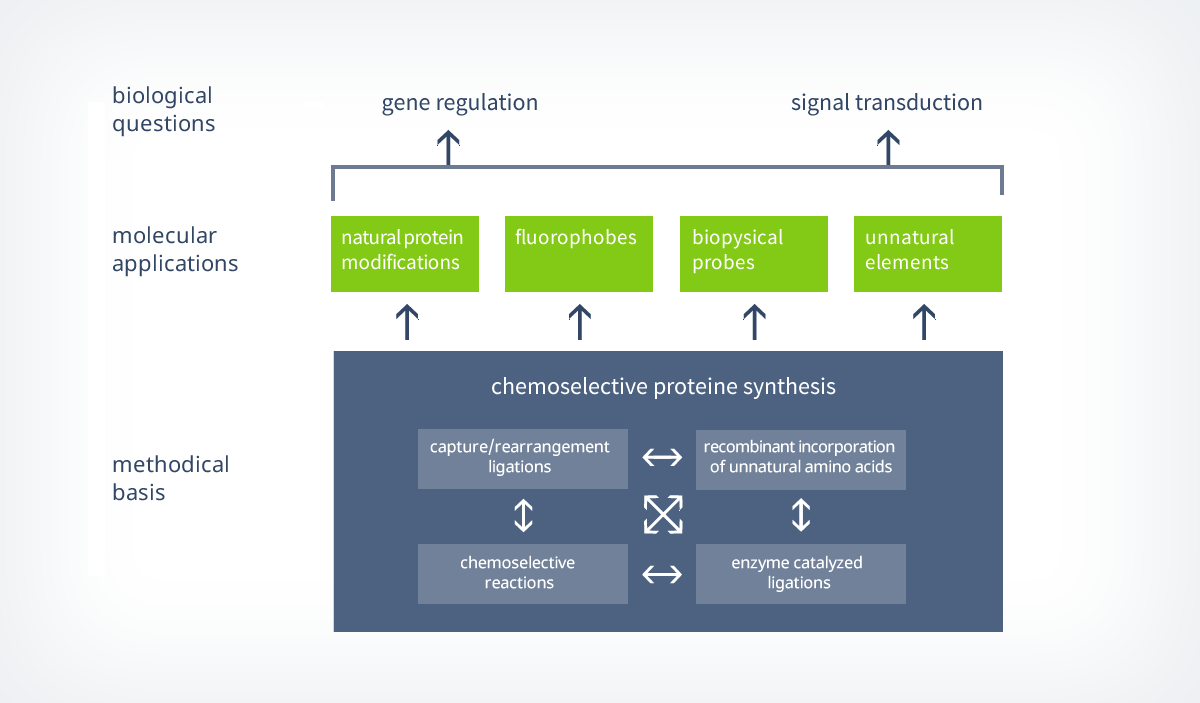CPS Meeting 2019
Please find informations on our final project report meeting here:
Conference report:
PDF-File (1,7 mB)
Conference website:
www.cps2019.de
Scientific goals
The priority program 1623 focuses on projects that use chemical methods for the generation of functional proteins. We develop new techniques that combine chemoselectiv reactions and modern molecular biology, by this means trying to tackle important biological questions. Within this cutting-edge research the major goals of the priority program are:
We want to establish innovative chemoselective techniques for the synthesis of proteins, especially for in vivo use. Furthermore we want to advance cooperation between chemical, biochemical, biophysical and biological groups. Their research can benefit from homogenous proteins with posttranslational modifications and/or biophysical probes. Such complex molecules cannot be generated by molecular biology alone and require interdisciplinary cooperation. In particular the SPP is interested in intra- and extracellular proteins namely glycoproteins, histones and other proteins that are important for signal transduction (scheme 1).
Moreover we want to modify biomedically relevant proteins using chemical strategies in order to use them as therapeutics or in diagnostical applications. We therefore expect to provide innovative impulses for the pharmaceutical and biotechnological industries.
This priority program is not pursuing projects that deal with biological studies of proteins that have been isolated out of natural resources or peptides that derive from linear solid phase peptide synthesis. However, the methodological work to enhance these techniques or the synthesis of reference substrates by these techniques will play an important role within this cooperative priority program.
The priority program 1623 combines the expertise of international prestigious scientists that are spread all over Germany to a cooperative interdisciplinary network. This approach results in beneficial synergies that will enable the participating scientists to create new impulses for the development of new methods, address urgent but complicated biological questions and finally strengthen this important research area with the help of leading research groups from Germany.


